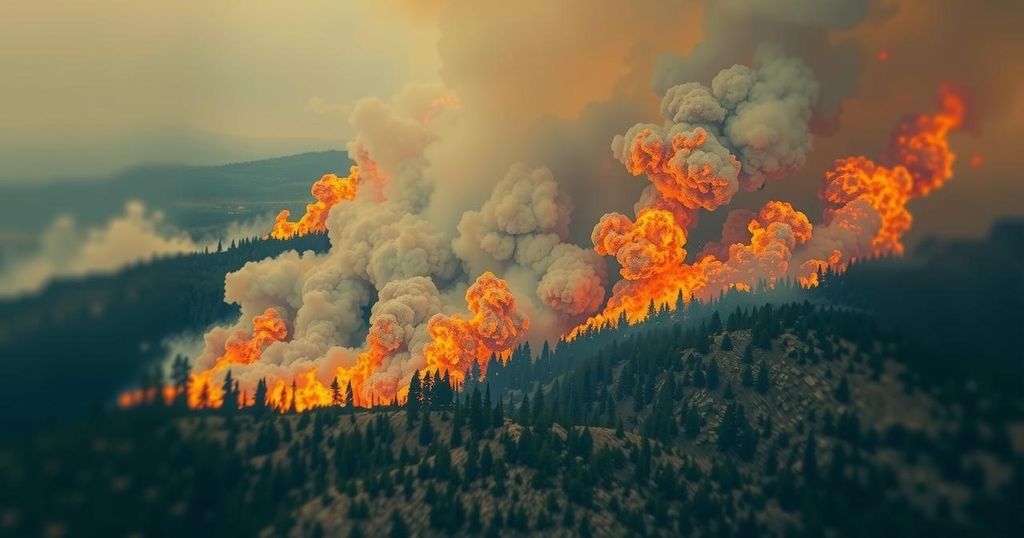The Dire Impact of Wildfire Smoke on Global Health Due to Climate Change
Research indicates that smoke pollution from wildfires, intensified by climate change, leads to approximately 12,566 deaths annually. Deaths attributed to wildfire smoke have risen dramatically over the decades, with significant impacts seen in regions like South America, Australia, and Europe due to changing climatic conditions. Vulnerable populations are at heightened risk of severe health consequences from particulate pollution, necessitating urgent actions for emission reduction and effective fire management.
Wildfires, exacerbated by climate change, have led to a substantial increase in smoke-related mortality worldwide, causing approximately 12,566 deaths annually as reported by researchers. This alarming statistic marks a considerable rise from the 669 deaths attributed to wildfire smoke in previous decades. The comprehensive study highlights a dramatic escalation in fire-related deaths due to air pollution, increasing from 46,401 in the 1960s to nearly 98,748 by the 2010s, with 12,000 of those deaths distinctly linked to climate change. The regions most significantly impacted include South America, Australia, and Europe, where drops in humidity and rising temperatures have intensified wildfire conditions. In contrast, South Asia has seen a decrease in smoke-related deaths due to increased humidity levels. Chae Yeon Park, a researcher from the Japanese National Institute of Advanced Industrial Science and Technology, emphasized the public health threat posed by wildfire-related smoke, particularly in high-density urban areas. The research employed pollution models and health risk assessments to establish a direct correlation between wildfire emissions and climate change. The hazardous particles known as PM2.5 found in wildfire smoke can severely affect respiratory and cardiovascular health, contributing to conditions such as irregular heartbeat, asthma attacks, and decreased lung function. Vulnerable populations—including individuals with preexisting health conditions, older adults, pregnant women, children, and marginalized communities—are particularly susceptible to the adverse effects of smoke exposure. The ongoing climate crisis is expected to escalate these health threats as conditions become increasingly conducive to extreme wildfires, which currently account for a significant proportion of air pollution challenges faced by populations in the United States. Wildfire smoke has been documented to cross borders, worsening air quality in distant urban centers, thereby affecting public health beyond the immediate geographical areas of the wildfires.
The increasing incidence and severity of wildfires are closely associated with climate change, which creates conditions conducive to fire ignition and spread. Smoke from these wildfires contains a mixture of pollutants, predominantly PM2.5, which poses severe health risks, leading to respiratory and cardiovascular diseases. Given the changing climate, the frequency of extreme weather events, including prolonged droughts and higher temperatures, engenders greater fire risk. As such, understanding the health implications of wildfire smoke has become paramount in addressing the public health crisis precipitated by climate change.
In conclusion, climate change significantly exacerbates wildfire conditions, resulting in a concerning rise in mortality linked to smoke pollution. The increase in deaths correlates with the expanded prevalence and intensity of wildfires, underscoring the necessity for enhanced emission reductions and improved fire management strategies. The impact of wildfire smoke far exceeds localized areas, affecting populations dwelling in urban environments and necessitating urgent public health measures.
Original Source: www.independent.co.uk




Post Comment